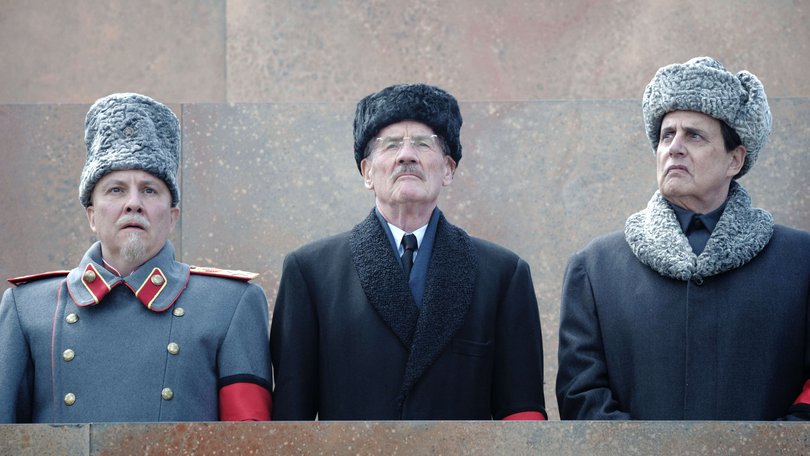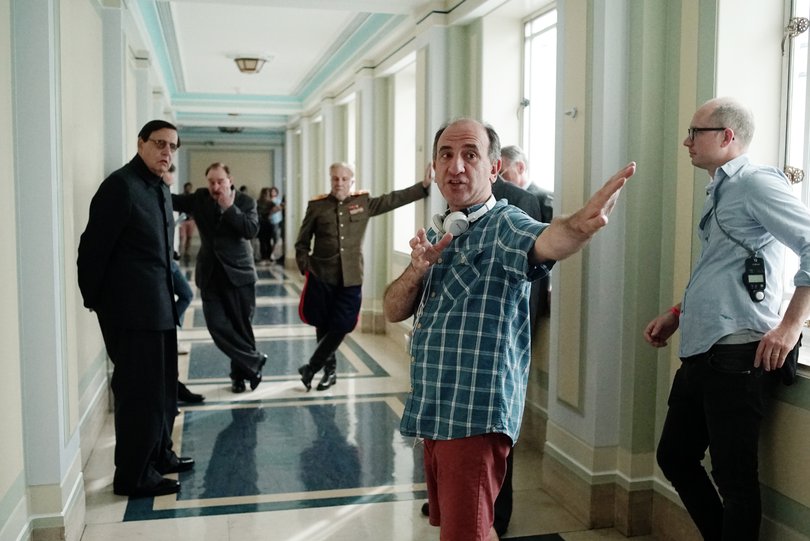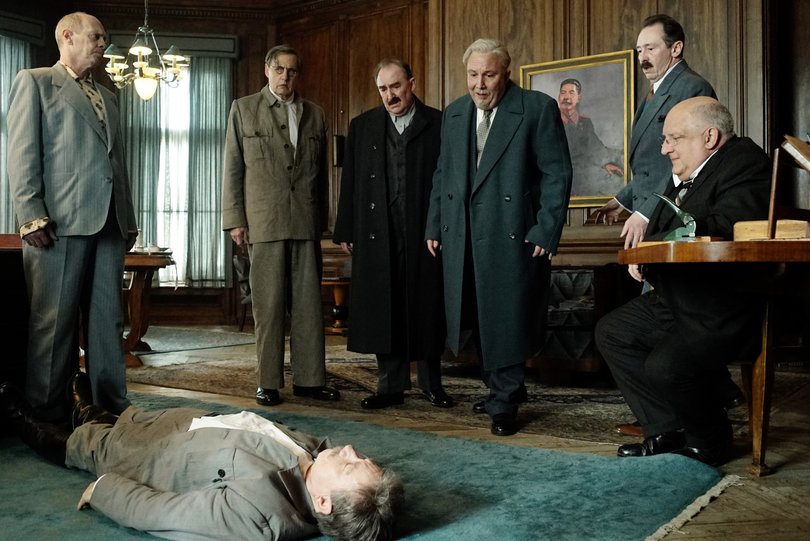Armando Iannucci’s The Death of Stalin is even more relevant - and still funny - now
Armando Iannucci’s The Death of Stalin plays more like a documentary than a comedy - although it is still very, very funny.

When Donald Trump ascended to the presidency, there were cries that it was the end of political satire.
How can you mock someone whose non-ironic actions defy the most absurd scenarios any writer or comedian could possibly imagine?
Almost a decade on, satire lives on, through the first Trump administration, the Biden years and then the return of the New Jersey-born property developer and six-time bankrupt.
Sign up to The Nightly's newsletters.
Get the first look at the digital newspaper, curated daily stories and breaking headlines delivered to your inbox.
By continuing you agree to our Terms and Privacy Policy.But it’s not without its bruises, as the recent events with American late-night hosts Jimmy Kimmel and Stephen Colbert can attest.
Add to that list, the Scottish writer Armando Iannucci, the force behind The Thick of It and Veep who this week revealed he was struggling to get financing for a new project based on Trump’s speeches
Trying to find investors and backers in the US, Iannucci told a Creative UK event, “I got a lot of, ‘Yeah, you wouldn’t get the money for that at the moment, I’m afraid’.”
When he pressed why, the feedback was “Well, you know, if you want what comes with it”.

Iannucci added that in conversations with US journalists, they told him that if you make the government’s “list”, you end up being targeted by tax authorities and will end up spending the next four years paying for lawyers.
Iannucci said he was still hopeful the project would get off the ground, but it would likely have to be without US financing.
Last year, Trump threatened to sue the filmmakers involved with The Apprentice, a biopic of his early years and relationship with Roy Cohn.
When Trump was elected the first time, Veep had just wrapped its fifth season out of an eventual seven, and everyone was watching to see how it would respond.
A spin-off of The Thick of It, Veep starred Julia Louis-Dreyfus as Selina Meyer, a vice-president and later president whose narcissism would be more remarkable if she wasn’t surrounded by people equally self-involved and self-serving – and incompetent.
Veep was the main comparison to the first Trump administration because of its direct parallels, but the show, under showrunner David Mandel (Iannucci had left the series after season four), ran their own race rather than specifically go after the new administration.

The more instructive Iannucci work from that time was actually The Death of Stalin, a film released in late 2017 but had been written and shot before Trump had sealed the Republican nomination.
The film is a comedy albeit drawn from real events surrounding the night and aftermath of Joseph Stalin’s death in March 1953.
It opens with a scene in which a radio director has to scramble to restage a live performance of Mozart’s Piano Concerto No. 23 when Stalin asks for a recording. They’re trying to recreate everything exactly as it was, except the pianist is refusing to play.
When it’s suggested that someone else fills in, a character played by Justin Edwards says the words, “The sound will be completely different, even Stalin…”.
“EVEN Stalin? I hope this office isn’t bugged,” Olga Kurylenko’s character replies.
Paddy Considine’s radio director immediately starts toadying. “Of course Comrade Stalin would be able to tell the difference! He’s a great man with a great ear. Two great ears!”
Edward’s conductor chimes in, “Sharp, sharp ears. The sharpest ears in the Soviet Union!”.
It’s all played for laughs but such sentiments are uttered without any irony every day about Trump, usually by himself, but also by all the sycophants he’s placed around him, having “learnt” from his first term that by appointing experienced hands will result in pushback against his will.
That’s been the big difference between the first and second Trump terms. At this point, the world largely understands who he is and can predict his whims. The more baffling thing is how everyone else reacts to him.
The diminished opposition, the enthusiasm to do his bidding, the manic and panic over whether or not one is seen to be loyal, is not unique to Trump. It’s a mark of many authoritarian regimes, including in Stalin’s.
It’s all in Iannucci’s film. Stalin is barely a character in the movie that bears his name. Iannucci seemed to be more interested in how an autocrat who rules through fear impacts everyone else.
At the time of The Death of Stalin’s release, he said, “It all boils down to how do people behave under terror? They have in a strange and absurd way. All dignity goes out of the window when they’re fighting for survival.”
Rewatching The Death of Stalin now, it’s still a comedy, but there’s a bittersweet aftertaste because it’s also playing out in real time on the news.
In the film, Lavrenti Beria, the head of the security services, calls the media, “enemies of the people”, and Stalin’s children, especially son Vasily, are treated with kid gloves and reverence despite not earning that privilege.
When Iannucci made The Death of Stalin, he toned down certain things even they though were on the historical record.
He thought people wouldn’t believe it.

